row2k Features
Roundup of Rowing Racecourses in the US in 2013
Course Conditions
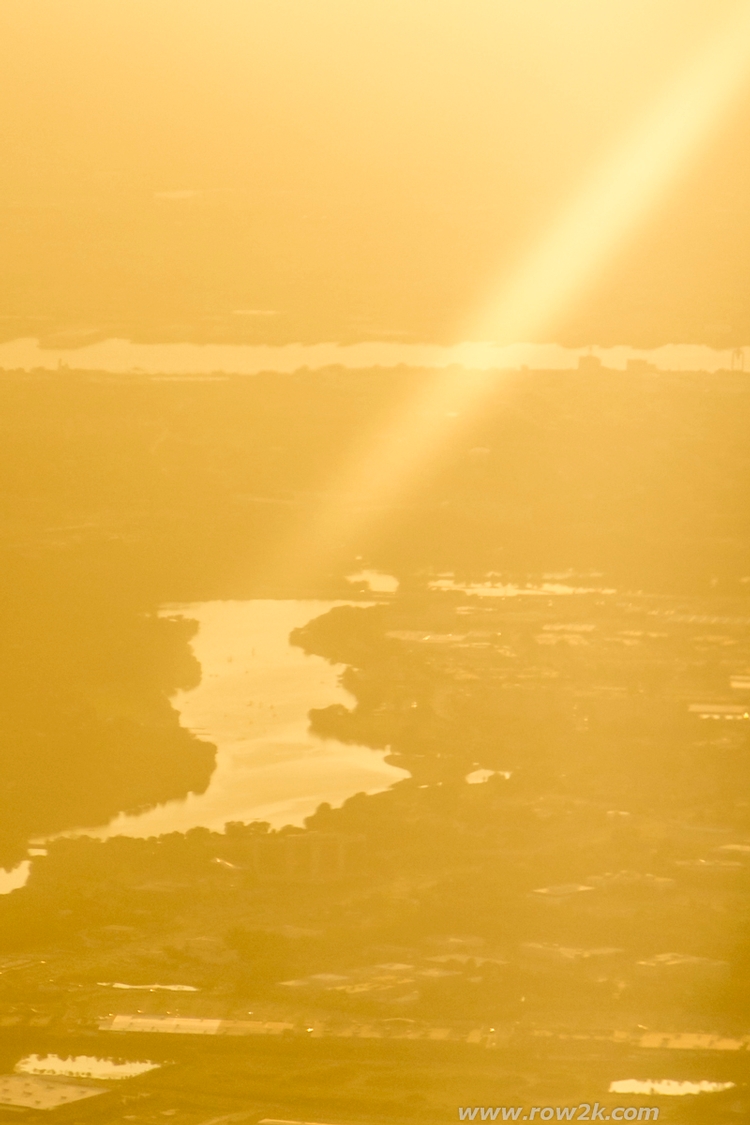
Course Conditions
September 25, 2013
Ed Hewitt, row2k.com
Ed Hewitt, row2k.com

Golden evening over the Cooper River
With a couple significant developments with respect to our national racecourses, including the successful bid to bring the World Championships to the US, as well as the NCAA's potential ban on events being held in New Jersey due to the possible adoption of sports betting (as if the NCAA would have a fraction of its traction without sports betting – without office pools, the phrase Sweet 16 would be no more than a quaint reference to the 1950s) – now seems like a good time to do a roundup of active six-lane/2k racecourses in the US. I have not included courses with turns, short courses, tidal conditions, or other anomalies.
There are lots of "inside baseball" issues at any venue, such as those involving club politics, scheduling, the interests of other local "stakeholders," and more, and we address some of them here, but I hope to focus primarily on the things that matter to folks who are likely to be going down the course during an actual race (athletes at all levels of the sport), as well as the people who care about them and what happens on the racecourse (coaches, parents, friends, etc.).
One important issue I address here and there is the availability and reliability of launches – launches (and maybe sculling grips) remain the true weak link in rowing, it sometimes seems to me – but that is another topic for another time.
Following are the pros, cons, and fairness issues as best we can collect them at US 2k course, going from east to west. Naturally, the courses that have hosted more racing have more extensive information, both pro and con; if you see anything I missed or have anything instructive or interesting to add, please do so in the comments (civilly and coherently, of course).
Finally, a bit of a disclaimer/reality check: row2k's audience is a hardcore, somewhat no-nonsense , active rowing audience, so some of the following "Con" and "Fairness" assessments may seem a bit hard-hitting – but for our audience, to lob these in too gently doesn't seem like it is helpful or necessary. All of the following are very good-to-great racecourses, and some match up just fine against many international venues, let's be honest. Massive kudos to the folks running these places for making it all happen.
Lake Quinsigamond, Worcester, MA
Pros: Good spectator experience, with very concentrated boat storage/launch/viewing/medal stand area, but big enough to accommodate good-sized regatta. Very good infrastructure at boathouse, especially thanks to lots of committed local coaches and volunteers.
Cons: On-water experience can be less favorable; tends to be wake-y, and marshaling is tricky;I have seen heats in which all six boats got late-to-line warnings, at the end of a series of heats in which first four, then five, then the six boats got warnings.
Fairness: Fairness is biggest issue – prevailing crosswinds from starboard side almost always have dramatic effect on race outcomes.
Mercer Lake, Mercer County NJ
Pros: lots of room, a number of different places from which to watch racing, heaps of parking, in a public park with fairly loose rules and regs. Good volunteer base, professionally run boathouse, very experienced locals due to running multiple high-level regattas regularly, including nearly all US team and Olympic trials for several years. Decent level of local political support. Easily accessible from two major airports (EWR and PHL). Heaps of hotels and restaurants, albeit somewhat in strip mall environment. Big climbing playground for kids bored of rowing.
Cons: wind tends to touch down on water very easily, so can get rough without that much wind. Occasional scheduling bumps due to sharing water with other local groups. Starting line area very rustic, can be a bit rough on refs.
Fairness: a crosshead off of the starboard side can provide some wind shelter to higher lanes, and a crosshead off of the port side can shelter the lower lanes for the first 75 meters, but overall one of the more consistently fair courses nationally. No currents.
Cooper River, Camden NJ
Pros: Location central on Northeast Corridor, and is also supported by major airports, hotels, etc., so trip planning is typically affordable and straightforward. Course located in public park, and entire course surrounded by running/bike path, so following crews is doable and safe (so long as you look where you are going, whew). I tend to like the atmosphere of the very public park – local folks out on walks stopping to talk to refs, having family picnics, throwing birthday parties, etc. puts rowing in the middle of everyday life of the area. A large number of regatta folks and refs have the venue wired.
Biggest potential "pro" is current massive upgrade project, including a full dredging of the racecourse.
Cons: Spectator experience at the finish line can be diffuse; athlete and launching area are a congested 1000-1200-meter roundtrip walk apart, so some athletes never get to finish line area. Infrastructure at finish line very Spartan and rustic – Al Wachlin's trailer with a phone and electrical line going in, and that's about it. Too few launches on site as well, so that programs have to bring launches for any sizeable regatta, which is logistically challenging when you are already pulling a full trailer of shells with your only trailer and towing vehicle (which is a problem at a number of courses, no question, as mentioned in the intro).
Fairness: inconsistent, although in moderate winds and stable river conditions, very fair racing.
Cross headwinds have caused problems at some big regattas. Control of water flow has been a serious problem on a couple occasions as well, as it has at Lake Natoma and possibly Indianapolis as well. Water depth in lane six is shallow, so that lane tends to have "dead spots," although current massive dredging project should solve this.
Benderson Park, Sarasota FL
Pros: Being developed as a fully compliant FISA course, one of only two in the United States at present. Truly significant financial and resources and commitment from local individuals, local and regional industry, and government. Hotel availability considerable and growing.
Cons: Heat and humidity during summer months can be oppressive and potentially unsafe for high-level racing. Course seems to be very exposed to winds, as there were 3-4 swampings on the course this past year. The construction of a two kilometer long island right down the middle of the lake may mitigate this particular issue going forward, and will add a lot to warmup area protection, ability to film races, and much more. Course is a bit wet behind the ears for now; still untested on running a high-stakes major regatta.
Fairness: not enough events with a deep enough field to compare reliable expectations to outcome, although big cross headwinds appear to be an obvious issue so far, as is usually the case with crosswinds.
Lake Lanier, Gainesville GA
Pros: FISA-compliant 1996 Olympic race course, can race eight lanes across, traffic patterns straightforward. Spectator experience can be great, as the layout of the overall venue is really good, and there is a huge built-in pavilion and grandstand from the 1996 Olympics adjacent to the finish line tower. Warmup patterns and traffic very straightforward, with 3000 meters of straightaway waters, and no current. Bit of a cool factor rowing on former Olympic racecourse.
Cons: very limited hotel and tourist infrastructure. Also, there have been problems with regulating power boats on the lake, as the park folks seem not to be inclined to shut down portions of the lake except during actual race times, but not during practice times (as I understand it, this was a critical factor in the last minute move of the NCAA championship to Indy in 2013). Seems to have seen atrophy in regatta subscriptions of late.
Fairness: Good – mainly the obvious cross headwind scenario that can cause problems at pretty much every racecourse worldwide seems to cause noticeable fairness issues.
Lake Harsha, Cincinnati OH
Pros: big beach and pavilion accommodates good numbers; start dock and lanes are very good (purchased from the 1984 Olympics),
Cons: last 500m can be pretty exposed to winds and waves from the port side; site is somewhat remote and rustic. Site has not been as active in recent years, which may or may not affect anything!
Fairness: Southeast winds can provide wind shelter to higher lanes; exposed course as above can make things pretty bumpy at times.
Melton Lake, Oak Ridge TN
Pros: well-run boathouse group, very experienced with running very large regattas; claims to be able to provide a "turnkey" regatta operation year-round, with course, starting pontoons and launching docks always in. Local club folks and volunteers are really good, and reinforce southern hospitality factor; it is noticeable so should be mentioned. Can accommodate big regattas (has hosted Youth Invites and NCAAs in recent years), and course is very accessible; can ride or walk along entire length, and the whole starting area setup is very good. If Oak Ridge were easier and more economical to get to, Oak Ridge might well be the premier venue in the US at the moment.
Cons: Can be difficult and expensive to get to due to lack of a major airport and airlines. Issues with respect to current somewhat unknown (to me at least).
Fairness: have only been to one big regatta there, where fairness was not an issue. Hills on both sides of the course limit wind exposure, but are far enough away so not to become a serious factor in fairness. This also results in good water. The lake does have some current, tho; when the dam is open, there can be some current in lane one, which is part of the reason the course is angled the way it is. Anyone care to comment?
Eagle Creek Park, Indianapolis IN
Pros: Park officials are helpful and outgoing (with caveat noted below). Club folks and volunteers are competent, organized, pleasant, and hard working. Automobile traffic in the area tends to be light and manageable, and hotels and meals very affordable.
Cons: Windy (hence the name Windianapolis), and water tends to bump up fairly easy, resulting in swampings of skilled NCAA-caliber varsity eights at both of the NCAA championships that have been held here to date (2003 and 2012). Park officials tend to be somewhat alarmist, shutting down all access to the venue at slightest sign of storm activity, sometimes stranding folks in outside parking lots, on buses, etc.
Fairness: may have flow issues (as with Natoma, Cooper, others); after NCAA finals, there was talk of issues caused by the dam favoring outside lanes (granted this is first time in 20 years of going there I have heard this, and it was stated by crews not in outside lanes, but that is normal, so still…).
Oklahoma River, Oklahoma City, OK
Pros: massive commitment from broad swath of the local community; it would be understatement merely to call the beautiful facility a "boathouse," plenty of launches, serious finish tower and it is right in the middle of the city, a rare situation for rowing. Airport close to downtown and racecourse, good hotel availability. Racecourse itself is truly tricked out, both at the starting line and finish line, including a zip line! Big regattas often include bouncy houses, slides, etc.; fun stuff. They are setting things up to do night rowing routinely.
Cons: winds can be truly formidable; night rowing effort is due in part to lesser winds after sun goes down. Location at least a day's driving distance from any area with concentrated rowing population. In Tornado Alley, and they do occur, but typically not something to worry about in a general sense (similar to hurricanes in Florida and thunderstorms in NJ, etc.). At convention a few years ago, the plnned on-water demonstrations were shut down by winds and rough water, which is apparently fairly common occurrence.
Fairness: high winds can create very protected lanes; comments along lines of ""one lane of good water, in one direction some days;" at ACRA a few years back almost all winners came out of lee shore, otherwise, data is somewhat limited; as only a few big rowing regattas have been held here so far.
Lake Natoma, Gold River, CA
Pros: great spectator experience, especially when jumbotron is kicking. Sufficient hotels, tend to be affordable even for very good accommodations. Once you get past the fact that the majority of the rowing population in the US has to take a plane to the location, relatively easy to get to, whether flying directly or into SF and driving rest of way, and traffic in the area not a factor. Very visually appealing venue location; sunniest location on the planet from June to September (fact). Without some of the fairness issues, this venue might be the go-to venue nationally.
Cons: Current on river is a constant concern as regards fair racing; as a result lanes have been seeded from 1-6 for all races here for decades, from high school on up (more in fairness below). Park and aquatic center can sometimes have a lot going on that is non-rowing related. Can get hot by the last races of spring – "but it's a dry heat" (making a joke, but a serious one; 98 degrees in the desert is very different from 98 degrees of east coast humidity). Truly a hike for folks from areas with the highest density of rowers nationally.
Fairness: Current favors lower lanes, especially in first part of racecourse; if there is a cross headwind from that side of the course as well, it gets almost impossible to do well in outer lanes.
Illustrative story: bunch of coaches discussing current/stream before race were interrupted by a fisherman who was casting repeatedly into the river very nearby; fisherman said "I don't know anything about rowing, but I know about fishing, and this right here is the stream," and cast his line into lane 1, everyone watches the line borne along by current.
Dexter Lake, Dexter, OR
Pros: no current, with predominantly flat conditions; regatta site is a state park, so there is lots of room. Prevailing winds are either a straight head or a straight tail, and there are extensive lodging and food options in Eugene.
Cons: All said lodging options are a minimum 25 minutes away in Eugene, and flights into Eugene are limited, with the Portland airport as the main option, two hours away. Park area is fairly rustic, with limited permanent infrastructure on site, and there are limited spectator viewing options, mostly concentrated at the 1750m mark.
Fairness: Typical conditions are flat and fair. Occasional crosswind can come into play which can make course un-rowable; course can go from glass to white capping and back to glass in 30 minutes. Locals have wind and water forecasts down pretty good.
More Good If Less Active Courses
The following racecourses do have suitable conditions, installed courses, and have been used successfully for some big regattas, but haven't quite had the activity to have a national presence or consequence just yet (or recently, as the case may be); if they start to host more regattas, we will update this article to include more information:
- Clemson SC
- Aiken SC
- Occoquan VA
Others on the Horizon
The following sites are currently researching or developing racecourses, and are worth watching.
- Lake Dillon, Zanesville OH; see news item here
- Devil's Lake State Park, Baraboo WI. The Badgers have raced here a bit.
As noted above, if you see anything I missed or have anything instructive or interesting to add, please do so in the comments (civilly and coherently, of course).
There are lots of "inside baseball" issues at any venue, such as those involving club politics, scheduling, the interests of other local "stakeholders," and more, and we address some of them here, but I hope to focus primarily on the things that matter to folks who are likely to be going down the course during an actual race (athletes at all levels of the sport), as well as the people who care about them and what happens on the racecourse (coaches, parents, friends, etc.).
One important issue I address here and there is the availability and reliability of launches – launches (and maybe sculling grips) remain the true weak link in rowing, it sometimes seems to me – but that is another topic for another time.
Following are the pros, cons, and fairness issues as best we can collect them at US 2k course, going from east to west. Naturally, the courses that have hosted more racing have more extensive information, both pro and con; if you see anything I missed or have anything instructive or interesting to add, please do so in the comments (civilly and coherently, of course).
Finally, a bit of a disclaimer/reality check: row2k's audience is a hardcore, somewhat no-nonsense , active rowing audience, so some of the following "Con" and "Fairness" assessments may seem a bit hard-hitting – but for our audience, to lob these in too gently doesn't seem like it is helpful or necessary. All of the following are very good-to-great racecourses, and some match up just fine against many international venues, let's be honest. Massive kudos to the folks running these places for making it all happen.
Lake Quinsigamond, Worcester, MA
Pros: Good spectator experience, with very concentrated boat storage/launch/viewing/medal stand area, but big enough to accommodate good-sized regatta. Very good infrastructure at boathouse, especially thanks to lots of committed local coaches and volunteers.
Cons: On-water experience can be less favorable; tends to be wake-y, and marshaling is tricky;I have seen heats in which all six boats got late-to-line warnings, at the end of a series of heats in which first four, then five, then the six boats got warnings.
Fairness: Fairness is biggest issue – prevailing crosswinds from starboard side almost always have dramatic effect on race outcomes.
Mercer Lake, Mercer County NJ
Pros: lots of room, a number of different places from which to watch racing, heaps of parking, in a public park with fairly loose rules and regs. Good volunteer base, professionally run boathouse, very experienced locals due to running multiple high-level regattas regularly, including nearly all US team and Olympic trials for several years. Decent level of local political support. Easily accessible from two major airports (EWR and PHL). Heaps of hotels and restaurants, albeit somewhat in strip mall environment. Big climbing playground for kids bored of rowing.
Cons: wind tends to touch down on water very easily, so can get rough without that much wind. Occasional scheduling bumps due to sharing water with other local groups. Starting line area very rustic, can be a bit rough on refs.
Fairness: a crosshead off of the starboard side can provide some wind shelter to higher lanes, and a crosshead off of the port side can shelter the lower lanes for the first 75 meters, but overall one of the more consistently fair courses nationally. No currents.
Cooper River, Camden NJ
Pros: Location central on Northeast Corridor, and is also supported by major airports, hotels, etc., so trip planning is typically affordable and straightforward. Course located in public park, and entire course surrounded by running/bike path, so following crews is doable and safe (so long as you look where you are going, whew). I tend to like the atmosphere of the very public park – local folks out on walks stopping to talk to refs, having family picnics, throwing birthday parties, etc. puts rowing in the middle of everyday life of the area. A large number of regatta folks and refs have the venue wired.
Biggest potential "pro" is current massive upgrade project, including a full dredging of the racecourse.
Cons: Spectator experience at the finish line can be diffuse; athlete and launching area are a congested 1000-1200-meter roundtrip walk apart, so some athletes never get to finish line area. Infrastructure at finish line very Spartan and rustic – Al Wachlin's trailer with a phone and electrical line going in, and that's about it. Too few launches on site as well, so that programs have to bring launches for any sizeable regatta, which is logistically challenging when you are already pulling a full trailer of shells with your only trailer and towing vehicle (which is a problem at a number of courses, no question, as mentioned in the intro).
Fairness: inconsistent, although in moderate winds and stable river conditions, very fair racing.
Cross headwinds have caused problems at some big regattas. Control of water flow has been a serious problem on a couple occasions as well, as it has at Lake Natoma and possibly Indianapolis as well. Water depth in lane six is shallow, so that lane tends to have "dead spots," although current massive dredging project should solve this.
Benderson Park, Sarasota FL
Pros: Being developed as a fully compliant FISA course, one of only two in the United States at present. Truly significant financial and resources and commitment from local individuals, local and regional industry, and government. Hotel availability considerable and growing.
Cons: Heat and humidity during summer months can be oppressive and potentially unsafe for high-level racing. Course seems to be very exposed to winds, as there were 3-4 swampings on the course this past year. The construction of a two kilometer long island right down the middle of the lake may mitigate this particular issue going forward, and will add a lot to warmup area protection, ability to film races, and much more. Course is a bit wet behind the ears for now; still untested on running a high-stakes major regatta.
Fairness: not enough events with a deep enough field to compare reliable expectations to outcome, although big cross headwinds appear to be an obvious issue so far, as is usually the case with crosswinds.
Lake Lanier, Gainesville GA
Pros: FISA-compliant 1996 Olympic race course, can race eight lanes across, traffic patterns straightforward. Spectator experience can be great, as the layout of the overall venue is really good, and there is a huge built-in pavilion and grandstand from the 1996 Olympics adjacent to the finish line tower. Warmup patterns and traffic very straightforward, with 3000 meters of straightaway waters, and no current. Bit of a cool factor rowing on former Olympic racecourse.
Cons: very limited hotel and tourist infrastructure. Also, there have been problems with regulating power boats on the lake, as the park folks seem not to be inclined to shut down portions of the lake except during actual race times, but not during practice times (as I understand it, this was a critical factor in the last minute move of the NCAA championship to Indy in 2013). Seems to have seen atrophy in regatta subscriptions of late.
Fairness: Good – mainly the obvious cross headwind scenario that can cause problems at pretty much every racecourse worldwide seems to cause noticeable fairness issues.
Lake Harsha, Cincinnati OH
Pros: big beach and pavilion accommodates good numbers; start dock and lanes are very good (purchased from the 1984 Olympics),
Cons: last 500m can be pretty exposed to winds and waves from the port side; site is somewhat remote and rustic. Site has not been as active in recent years, which may or may not affect anything!
Fairness: Southeast winds can provide wind shelter to higher lanes; exposed course as above can make things pretty bumpy at times.
Melton Lake, Oak Ridge TN
Pros: well-run boathouse group, very experienced with running very large regattas; claims to be able to provide a "turnkey" regatta operation year-round, with course, starting pontoons and launching docks always in. Local club folks and volunteers are really good, and reinforce southern hospitality factor; it is noticeable so should be mentioned. Can accommodate big regattas (has hosted Youth Invites and NCAAs in recent years), and course is very accessible; can ride or walk along entire length, and the whole starting area setup is very good. If Oak Ridge were easier and more economical to get to, Oak Ridge might well be the premier venue in the US at the moment.
Cons: Can be difficult and expensive to get to due to lack of a major airport and airlines. Issues with respect to current somewhat unknown (to me at least).
Fairness: have only been to one big regatta there, where fairness was not an issue. Hills on both sides of the course limit wind exposure, but are far enough away so not to become a serious factor in fairness. This also results in good water. The lake does have some current, tho; when the dam is open, there can be some current in lane one, which is part of the reason the course is angled the way it is. Anyone care to comment?
Eagle Creek Park, Indianapolis IN
Pros: Park officials are helpful and outgoing (with caveat noted below). Club folks and volunteers are competent, organized, pleasant, and hard working. Automobile traffic in the area tends to be light and manageable, and hotels and meals very affordable.
Cons: Windy (hence the name Windianapolis), and water tends to bump up fairly easy, resulting in swampings of skilled NCAA-caliber varsity eights at both of the NCAA championships that have been held here to date (2003 and 2012). Park officials tend to be somewhat alarmist, shutting down all access to the venue at slightest sign of storm activity, sometimes stranding folks in outside parking lots, on buses, etc.
Fairness: may have flow issues (as with Natoma, Cooper, others); after NCAA finals, there was talk of issues caused by the dam favoring outside lanes (granted this is first time in 20 years of going there I have heard this, and it was stated by crews not in outside lanes, but that is normal, so still…).
Oklahoma River, Oklahoma City, OK
Pros: massive commitment from broad swath of the local community; it would be understatement merely to call the beautiful facility a "boathouse," plenty of launches, serious finish tower and it is right in the middle of the city, a rare situation for rowing. Airport close to downtown and racecourse, good hotel availability. Racecourse itself is truly tricked out, both at the starting line and finish line, including a zip line! Big regattas often include bouncy houses, slides, etc.; fun stuff. They are setting things up to do night rowing routinely.
Cons: winds can be truly formidable; night rowing effort is due in part to lesser winds after sun goes down. Location at least a day's driving distance from any area with concentrated rowing population. In Tornado Alley, and they do occur, but typically not something to worry about in a general sense (similar to hurricanes in Florida and thunderstorms in NJ, etc.). At convention a few years ago, the plnned on-water demonstrations were shut down by winds and rough water, which is apparently fairly common occurrence.
Fairness: high winds can create very protected lanes; comments along lines of ""one lane of good water, in one direction some days;" at ACRA a few years back almost all winners came out of lee shore, otherwise, data is somewhat limited; as only a few big rowing regattas have been held here so far.
Lake Natoma, Gold River, CA
Pros: great spectator experience, especially when jumbotron is kicking. Sufficient hotels, tend to be affordable even for very good accommodations. Once you get past the fact that the majority of the rowing population in the US has to take a plane to the location, relatively easy to get to, whether flying directly or into SF and driving rest of way, and traffic in the area not a factor. Very visually appealing venue location; sunniest location on the planet from June to September (fact). Without some of the fairness issues, this venue might be the go-to venue nationally.
Cons: Current on river is a constant concern as regards fair racing; as a result lanes have been seeded from 1-6 for all races here for decades, from high school on up (more in fairness below). Park and aquatic center can sometimes have a lot going on that is non-rowing related. Can get hot by the last races of spring – "but it's a dry heat" (making a joke, but a serious one; 98 degrees in the desert is very different from 98 degrees of east coast humidity). Truly a hike for folks from areas with the highest density of rowers nationally.
Fairness: Current favors lower lanes, especially in first part of racecourse; if there is a cross headwind from that side of the course as well, it gets almost impossible to do well in outer lanes.
Illustrative story: bunch of coaches discussing current/stream before race were interrupted by a fisherman who was casting repeatedly into the river very nearby; fisherman said "I don't know anything about rowing, but I know about fishing, and this right here is the stream," and cast his line into lane 1, everyone watches the line borne along by current.
Dexter Lake, Dexter, OR
Pros: no current, with predominantly flat conditions; regatta site is a state park, so there is lots of room. Prevailing winds are either a straight head or a straight tail, and there are extensive lodging and food options in Eugene.
Cons: All said lodging options are a minimum 25 minutes away in Eugene, and flights into Eugene are limited, with the Portland airport as the main option, two hours away. Park area is fairly rustic, with limited permanent infrastructure on site, and there are limited spectator viewing options, mostly concentrated at the 1750m mark.
Fairness: Typical conditions are flat and fair. Occasional crosswind can come into play which can make course un-rowable; course can go from glass to white capping and back to glass in 30 minutes. Locals have wind and water forecasts down pretty good.
More Good If Less Active Courses
The following racecourses do have suitable conditions, installed courses, and have been used successfully for some big regattas, but haven't quite had the activity to have a national presence or consequence just yet (or recently, as the case may be); if they start to host more regattas, we will update this article to include more information:
- Clemson SC
- Aiken SC
- Occoquan VA
Others on the Horizon
The following sites are currently researching or developing racecourses, and are worth watching.
- Lake Dillon, Zanesville OH; see news item here
- Devil's Lake State Park, Baraboo WI. The Badgers have raced here a bit.
As noted above, if you see anything I missed or have anything instructive or interesting to add, please do so in the comments (civilly and coherently, of course).
SUPPORT ROW2K
If you enjoy and rely on row2k, we need your help to be able to keep doing all this. Though row2k sometimes looks like a big, outside-funded operation, it mainly runs on enthusiasm and grit. Help us keep it coming, thank you! Learn more.
If you enjoy and rely on row2k, we need your help to be able to keep doing all this. Though row2k sometimes looks like a big, outside-funded operation, it mainly runs on enthusiasm and grit. Help us keep it coming, thank you! Learn more.
Comments | Log in to comment |
Rowing Features
This Week's Best of Rowing on Instagram 5/4/2024
May 4, 2024
Best Boat Names, Spring '24 - Vol. 1
May 2, 2024
Rowing Hack: Handle Height Helper 2.0
April 30, 2024
This Week's Best of Rowing on Instagram 4/27/2024
April 27, 2024
Rowing Headlines
2024 Inaugural CRCA Athletes to Watch
March 13, 2024
World Rowing suspends Serbian Rowing Federation over financial debts
January 23, 2024
National Rowing Hall of Fame ® Class of 2023 Announced
October 5, 2023
Advertiser Index
- Bont Rowing
- Calm Waters Rowing
- Concept 2
- Craftsbury Sculling
- The Crew Classic
- CrewLAB
- Croker
- Dad Vail Regatta
- Durham Boat Co.
- Empacher
- Faster Masters
- Filippi
- Fluidesign
- h2row.net
- HUDSON
- Live2Row Studios
- Nielsen-Kellerman
- Oak Ridge RA
- Peinert Boat Works
- Pocock Racing Shells
- Race1 USA
- Rockland Rowing Masters Regatta
- RowKraft
- Rubini Jewelers
- Vespoli USA
- WinTech Racing
Get Social with row2k!
Get our Newsletter!
Enter your email address to receive our weekly newsletter.
Support row2k!
Advertiser Index
- Bont Rowing
- Calm Waters Rowing
- Concept 2
- Craftsbury Sculling
- The Crew Classic
- CrewLAB
- Croker
- Dad Vail Regatta
- Durham Boat Co.
- Empacher
- Faster Masters
- Filippi
- Fluidesign
- h2row.net
- HUDSON
- Live2Row Studios
- Nielsen-Kellerman
- Oak Ridge RA
- Peinert Boat Works
- Pocock Racing Shells
- Race1 USA
- Rockland Rowing Masters Regatta
- RowKraft
- Rubini Jewelers
- Vespoli USA
- WinTech Racing



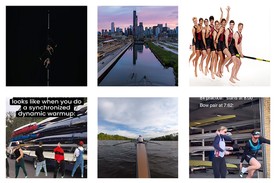


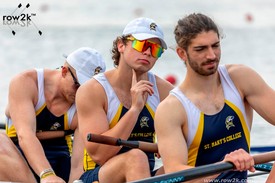
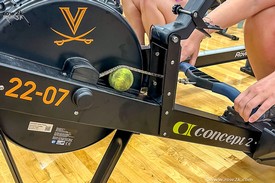
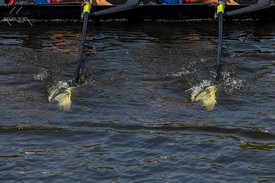
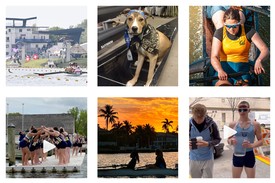
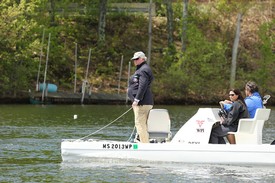






03/06/2017 12:43:14 PM
10/03/2013 3:20:04 PM
10/02/2013 5:49:33 PM
10/02/2013 4:29:01 PM
10/01/2013 6:27:09 PM
09/28/2013 1:12:36 PM
09/28/2013 12:40:08 PM
09/27/2013 11:14:13 PM
09/26/2013 7:56:36 PM
Cons: Trailer area is quite small, and spectator parking can get tight with a large enough crowd. No major airports close by (Charlotte is about 2 hours away, Atlanta might be a bit closer). Also a very big pain-the hill, especially on the dock closest to the finish line, where it is probably 30+ degrees up. Also, I don't think that race organizers have the authority to shut down the lake, I recall a motorboat with a tube behind it flying in while I was waiting at the start, doing a few doughnuts in the middle of the course, then turning back and coming out the way it came, all with a race going on, granted it was farther down the course by then.
Fairness: I don't have enough experience with the course to make any judgement on fairness.
09/26/2013 12:55:50 PM
09/26/2013 12:22:28 PM
09/26/2013 11:30:16 AM
09/26/2013 9:50:44 AM
09/25/2013 6:16:54 PM